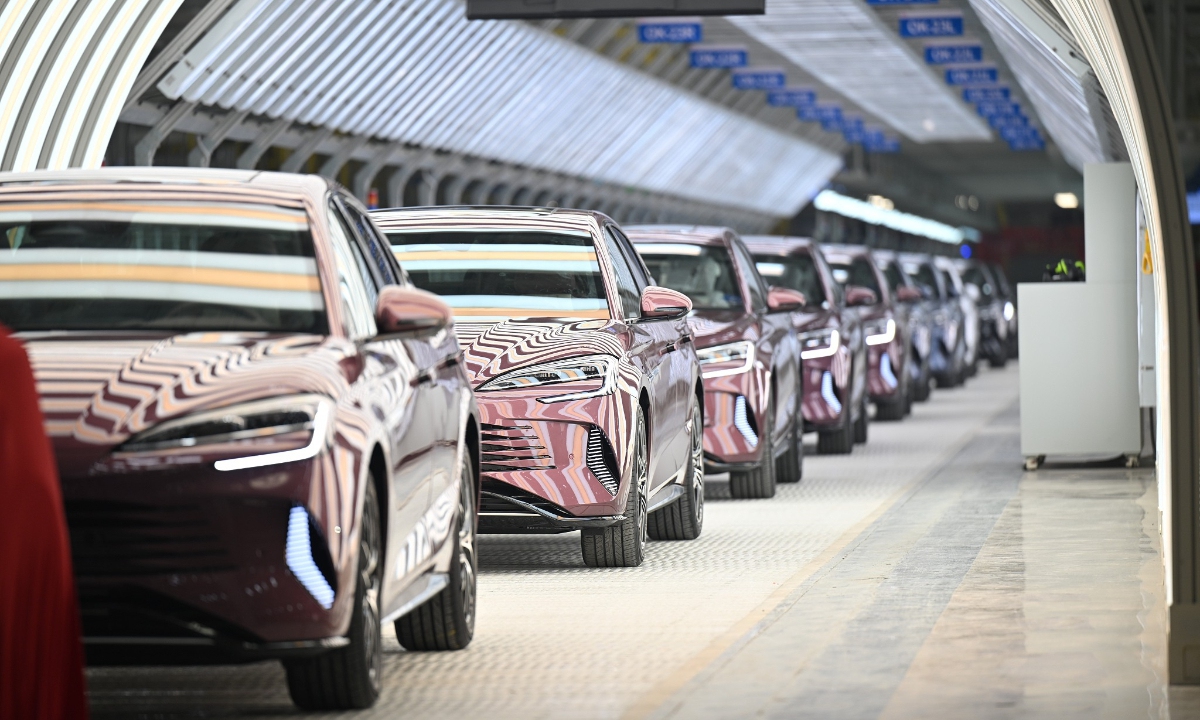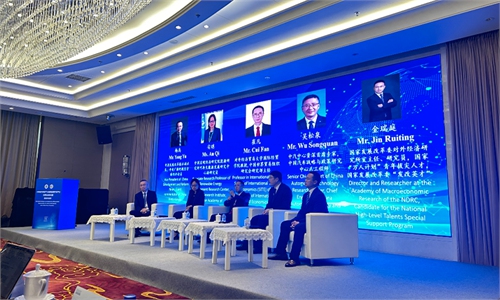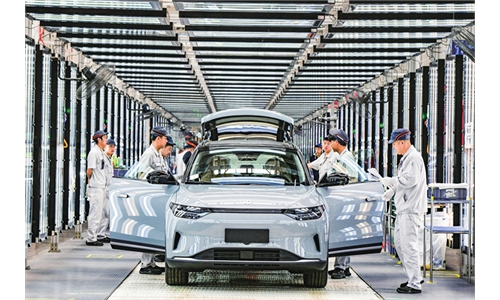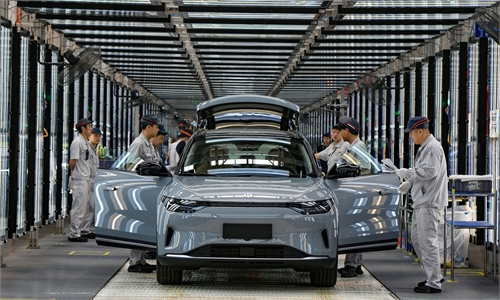Canada risks sacrificing normal trade with China if it follows US in imposing EV tariffs: experts
Actions will harm normal China-Canada economic exchanges

EV Photo:VCG
Canadian labor union Unifor on Thursday called on the Canadian federal government to impose strict tariffs on all Chinese-made electric vehicles (EVs) as the country is set to end a 30-day public consultation on a series of proposed measures on EVs imported from China.
Chinese and Canadian observers urged the Canadian government not to follow the footsteps of the US for its own national interests and the interests of common Canadian consumers. Even if Canada decides to impose tariffs on Chinese EVs, it will have limited impact on China's EV industry, observers said, noting that it will harm normal China-Canada economic exchanges and impede the normalization of bilateral relations.
Unifor recommended that the Canadian federal government impose a surtax above existing tariff rates on Chinese-made electric vehicles of 100%, batteries of 25%, and critical minerals of 25%, all of which would bring Canada in line with measures proposed by the US, according to a statement on the organization's website.
On July 2, Canada launched a 30-day consultation process on potential policy responses to Chinese EVs, which ends on Friday.
"Canada has no reason to impose tariffs on Chinese EVs at the risk of harming normal China-Canada economic exchanges, since the volume of EV trade between the two countries is low," Liu Dan, a research fellow at the Center for Regional Country Studies at Guangdong University of Foreign Studies, told the Global Times on Friday.
On the one hand, the Trudeau government stresses that it is implementing forceful policies to deal with climate challenges, and on the other, it aims to impose harmful tariffs that have an adverse impact on reducing emissions. "It seems that the Trudeau government has not figured out which one is more important for Canada - its national interests or its identity as a US ally," Liu said.
China has repeatedly stressed that there is no "overcapacity" in the EV sector and Chinese EVs have made great contributions to the global response to climate change and green transformation.
He Yadong, a spokesperson for China's Ministry of Commerce said on June 27 that the Canadian side should respect facts, abide by WTO rules and create a fair and non-discriminatory market environment for the joint development of the EV industry in China and Canada.
The Canadian government should prioritize the interests of ordinary Canadians over its politically-driven tariffs on EVs imported from China, a Canadian observer told the Global Times. "I do not believe that Canadian citizens are willing to bear the extra financial burden that comes with tariffs on Chinese EVs," Aidan Jonah, the editor-in-chief of The Canada Files, said.
He said the cost of BYD's Seagull EV ($12,000) - even with 100 percent tariffs and room for thousands in shipping costs - would be similar to or slightly more than the cost of the Chevrolet Bolt EV, which costs C$40,000 ($28,865) before Canadian subsidies are applied.



